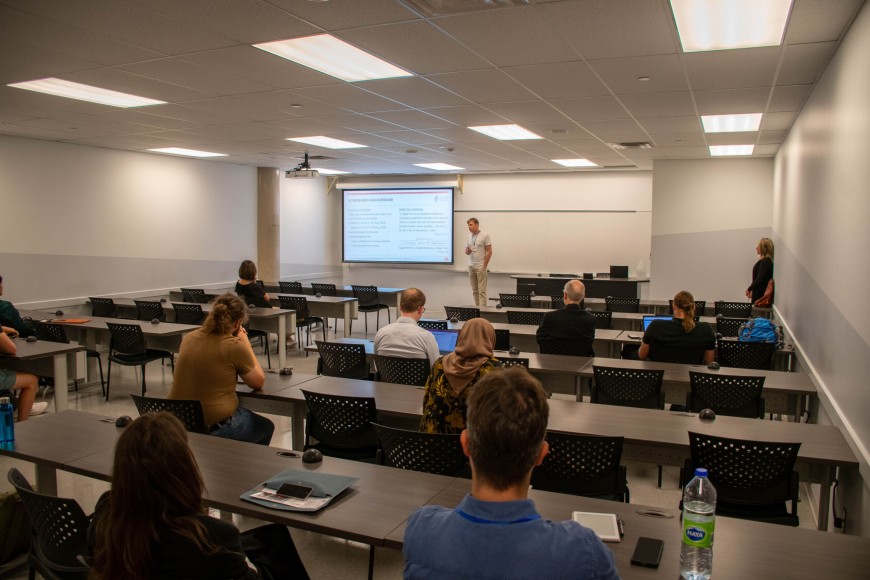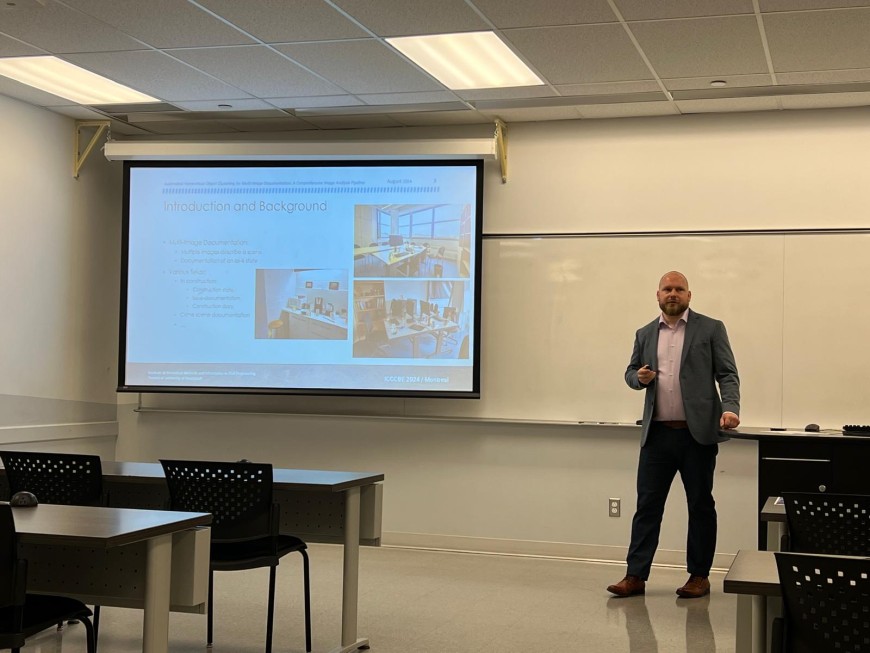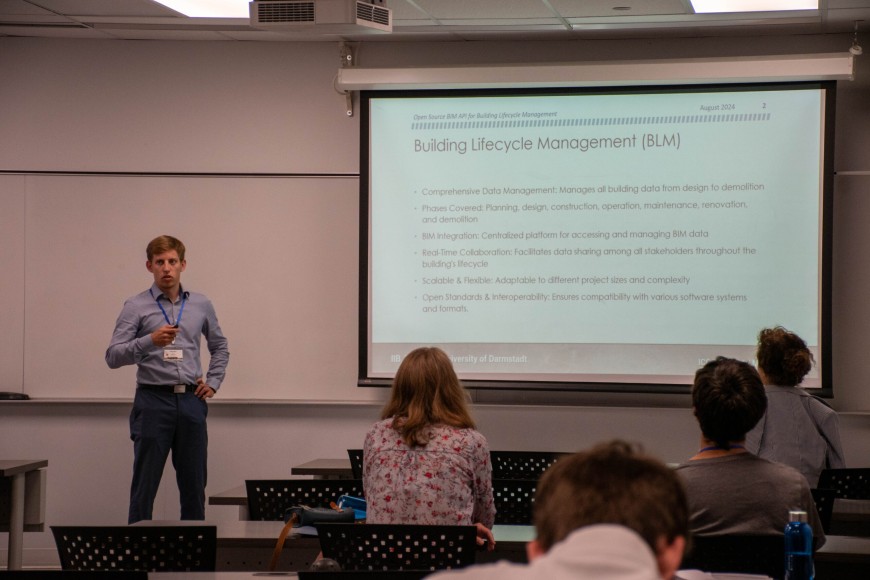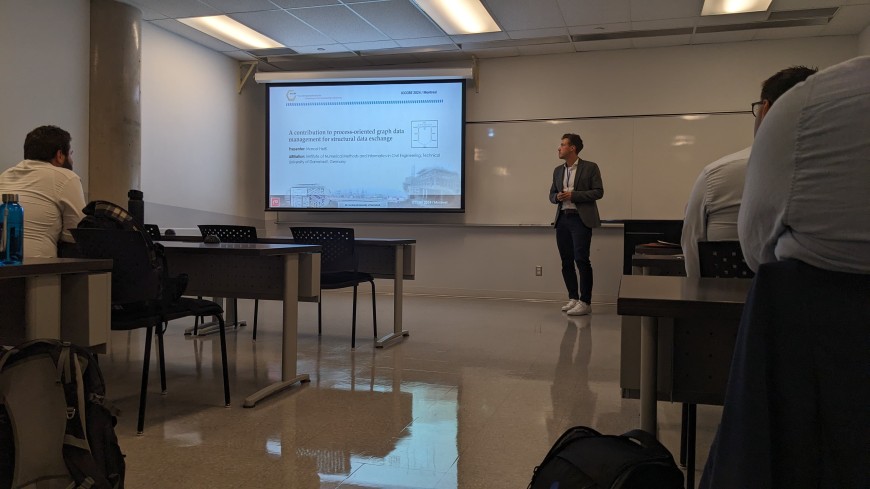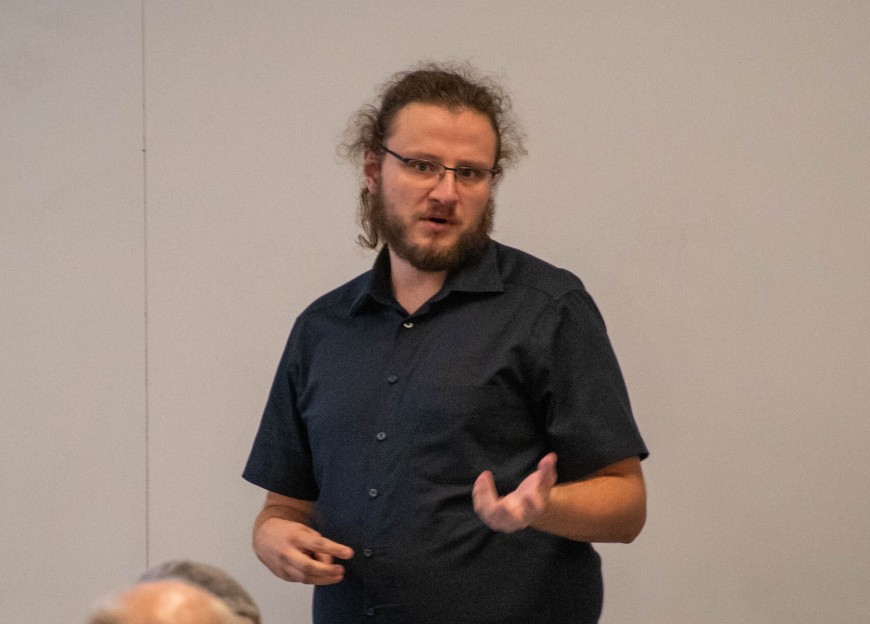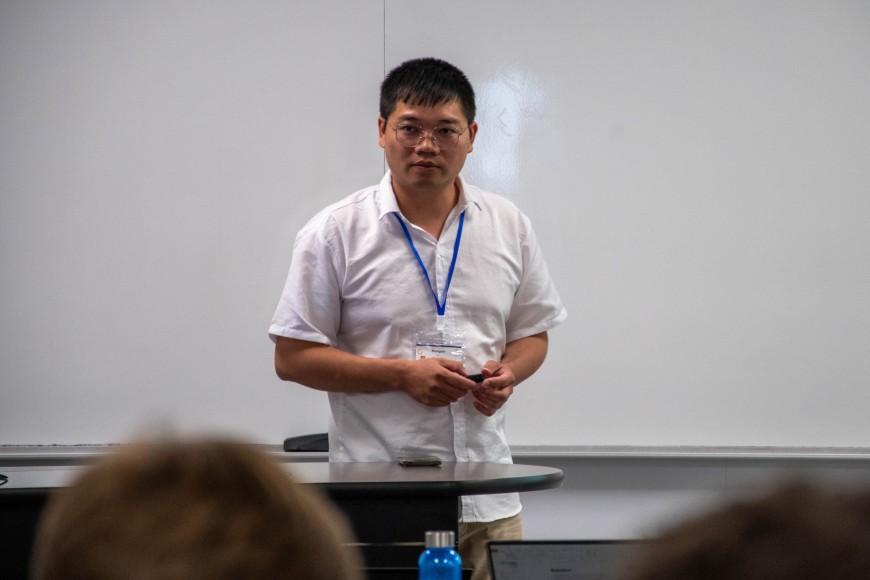Employees of the iib present their innovations at the ICCCBE 2024 in Montreal
Presentations and discussions on new methods and technologies in construction informatics promote the international exchange of knowledge and strengthen the network in the field.
2024/11/15
In August 2024, our employees attended the International Conference on Computing in Civil and Building Engineering (ICCCBE) in Montreal, Canada. There, they presented their latest research findings and approaches on topics such as explainable AI, BIM integration and blockchain applications.
Eight of our employees presented their current research projects at this year's International Conference on Computing in Civil and Building Engineering (ICCCBE) in Montreal. The event provided a unique platform for international encounters and knowledge exchange in the fields of civil and building engineering. The projects presented focussed on highly relevant topics ranging from artificial intelligence and BIM integration to blockchain technologies.
Jens Wala presented the potential and challenges of using explainable artificial intelligence (XAI) in critical infrastructures in his presentation ‘Transparency and Trust: Evaluating XAI for Critical Infrastructure Systems’. The research emphasises the importance of transparency and trust, particularly with regard to the regulatory requirements in the EU, Canada and the USA, in order to strengthen the resilience of the systems.
Maximilian Gehring presented a platform for the life cycle management of buildings based on open standards and open source software. This system enables the integration and visualisation of data across the entire project life cycle and is particularly suitable for small and medium-sized enterprises and for use in teaching, as it is available free of charge and supports barrier-free use.
Nils Schäfer focussed in his presentation on the use of Graph Neural Networks (GNN) for the automated dimensioning of reinforced concrete components. Based on a synthetic FEM data set, GNNs can be used to determine optimal cross-sections for concrete columns and floors in the early design phase.
Jascha Brötzmann examined the application of blockchain technology for digital twins. His presentation highlighted how decentralised storage and increased security through blockchain could revolutionise the use of digital twins and showed promising approaches to integrating these two future technologies with a concept.
Benedikt Kandler presented a system that optimises the analysis of BIM Collaboration Format (BCF) data using Natural Language Processing (NLP) and Large Language Models (LLMs). The aim is to automate and structure unstructured data to enable more efficient collaboration in construction projects.
Zhongxin Xia presented an innovative approach to integrating BIM and GIS data based on open source frameworks. The platform enables 3D merging of different file formats while retaining the original coordinates and offers additional tools for georeferencing and annotations, which provide valuable support in the management of infrastructure projects.
Marcel Heiß presented a model for the use of graph databases as a common data environment for the storage and exchange of structural data. This concept enables the seamless integration of process-orientated information and structural data, which supports improved collaboration and data consistency in structural design.
Michael Disser presented an innovative tool for automated image analysis for the documentation of construction projects. The image analysis pipeline identifies objects, assigns them spatially and visualises semantic relationships. Originally developed for crime scene documentation, it also enables more efficient image documentation and analysis in construction documentation.
The visit to ICCCBE 2024 not only promoted the exchange of new ideas and concepts, but also provided valuable impetus for future collaborations and projects. The participation of our researchers demonstrates the international relevance and innovative spirit of our institute, which contributes to shaping the future with a wide range of topics in construction informatics and engineering sciences.



